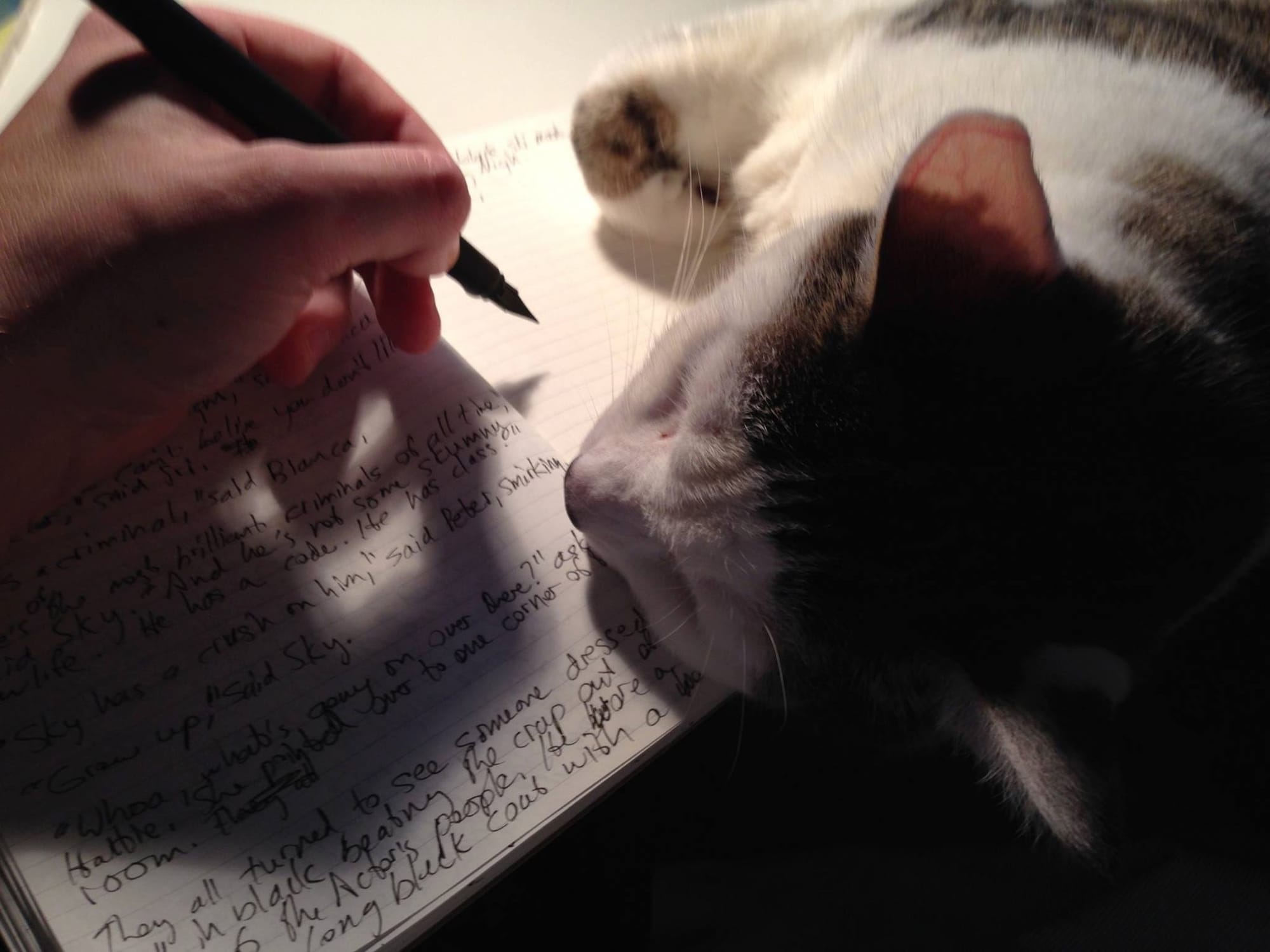What I Talk About When I Talk About Magic
"Okay, but you're not actually trying to cast spells or anything...right?"

"Okay, but you're not actually trying to cast spells or anything...right?"
My stepmother is a college professor who teaches criminal sociology. She's also a firm atheist who insists, despite my objections, that she doesn't "have a creative bone in my body."
I'm skeptical that anyone is completely lacking in creativity, but I will concede that some people have never cultivated it, so it lies fallow, perhaps for their entire lives. And that's fine! But the challenge, of course, was trying to explain to a eminently pragmatic Midwesterner and devout atheist who has no inclination toward the creative process, how or why that process seems to have led me to practice witchcraft.
I told her that I wouldn't go so far as to say I cast spells per say, but I do cast magic. Semantics? Perhaps, but precision of words facilitates precision of thought, which is essential to both writing and magic.
Okay, but what do I actually mean by "casting magic"?
Scott Cunningham, one of the first and most popular writers on the practice of modern Wicca and witchcraft, wrote in his book Wicca: A Guide for the Solitary Practitioner: "Magic is the projection of natural energies to produce needed effects."
Personally, I don't find that definition to be particularly helpful. Others might, but I keep getting hung up on the implications of word choice (again, writer brain, precision of thought, etc). What counts as natural? As a trans woman, am I considered "natural"? (the answer should be a firm Yes, but there are some in the world who would disagree) Are we saying "need" as opposed to "want?" If so, where is that line drawn, and who draws it? If not, how do we define need? And what is meant by energies? Or effects?
I could go on, but you get the idea.
In Dreaming the Dark, Starhawk describes magic in several ways. One definition is "the art of changing consciousness at will."
This makes way more sense to me. After all, I change my consciousness at will every time I sit down to write, which is pretty much daily. It wasn't an easy skill to cultivate. In fact, being able to sit down in any environment, regardless of yelling kids, barking dogs, traffic, sporting events, and every other distraction the world throws at me, and reliably immerse myself in the world of my imagination every single time took me years to master.
Some writers insist on cultivating a mood, being in a certain place, using a certain pen, or whatever else. And sure, those things are nice. A Tomoe paper notebook with a Lamy fountain pen dipped in Noodler's Ink, writing by candle light, with a cup of steaming genmaicha tea, and a purring cat beside me? Pure bliss! But as a single mother working two full time jobs, I had to train myself not to need those things if I actually wanted to write novels on a deadline (especially a 9 month deadline, Devi, you monster...). On buses, in waiting rooms, at student orchestra rehearsals, whatever. I trained myself so that no matter where I was, I could shift into that writing flow where time means something different, and the pictures in your mind are more vivid than anything in your physical surroundings.
This skill did not come without cost, both to my art and my life, but that's for another day. For now, let's just appreciate how handy that is! And what techniques did I use to train myself to do it? Why, the visualization exercises I learned while studying at the Carnegie Mellon School of Drama, of course! And as I've said, those exercises line up almost perfectly with what Starhawk describes as a "grounding" technique.
In Dreaming the Dark, Starhawk advises the reader to use the grounding technique as a way to channel power. And once you have that power, it needs to be directed somewhere. Toward an intention, a goal, perhaps a point of suffering that you would like to alleviate in yourself or someone else.
Or perhaps the creation of a story?
One of the most frequent questions authors are asked is "Where do you get your ideas?" No matter what they say, it basically boils down to two answers, both of them true at the same time:
From everywhere
and
I don't know
Oh sure, you might have fancy explanations about being inspired after reading such and such a book, or encountering a certain place while traveling, meeting a certain person, etc. But at the end of the day, nobody really understands the strange and unpredictable alchemy of how one gets from watching The Swordsman II in college, to 20 years later writing a trilogy of warrior pirate novels set in another world where molerats are large enough to eat your arm off.
Could this be magic in the same way that Peter Brooks describes theater in The Empty Space? Do such things "count" as magic? After all, if done skillfully, a novel or a play can not only change my consciousness while writing it, but also the consciousness of others who encounter it.
Perhaps we could say that I am casting magic right now upon myself as I write this, and then upon you as you read it?
Yes, okay, in this context it actually does sound better to say I'm casting a spell on you. A spell of contemplation, or inspiration, or confirmation, depending on where you are in the maturation of your own creative process. I'm sure it isn't everyone's definition of magic or spellcraft, but I'm using it as a baseline for mine.
Now that's all well and good, I suppose. But two follow up questions:
- Where does this "power" come from?
- What else could/should one do with it?
